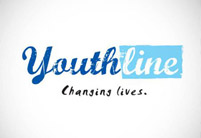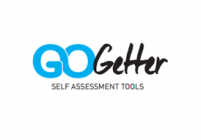
What's next?
Preparing for the future
-
Relationships >

Relationships
Friends, family, boyfriends, girlfriends...
-
Sex >

Sex
Being ready, consent, safety and more
-
Abuse and violence >

Abuse and violence
Physical, sexual, emotional and support
-
Bullying >

Bullying
Peer pressure, getting help & helping others
-
Your body >

Your body
Feeling good, exercise and your health
-
Your mind >

Your mind
Feelings, thoughts, getting help and supporting friends
-
Drugs and Alcohol >

Drugs and Alcohol
Staying safe, partying, tips
-
Beyond school >

Beyond school
Study, jobs, money, help & travel!
-
Our society >

Our society
The world around us
- GoGetter >
-
Learning >

Learning
Can't find what you are looking for?
Need Support or want to talk?
Contact us, by clicking here, we are here to help!

What's next?
Preparing for the future
Topics in this section:
Goals should be S.M.A.R.T
Specific.
Have a clear definition of exactly what you want to accomplish. If you want to be happier – how? If you want to get fit – how?
Measurable.
Have measurable targets or checkpoints along the way that you can aim for and celebrate. This is a good way to track your progress and feel yourself moving closer to your goal.
Attainable.
Your goal should be reachable and realistic. Your goal should be a bit of a stretch to reach but not too much. Although realistic, make sure it’s still something that excites and motivates you.
Relevant.
Your goal should be something that is meaningful and important to you. This will keep you motivated to strive for it.
Time-Bound.
Identify a specific period of time for reaching that goal. Again, make sure the time period you choose is realistic and reachable.
Examples:
Rather than "To get fit", a SMART goal would be "To be able to run 5kms without stopping by the time netball trials happen at school".
Rather than "To read more", a SMART goal would be "To read one new book each month for all 12 months of the year".
Other tips!
-
Start at the end and work backwards. Think long-term (e.g. in one year’s time) what you would like to achieve, and then break it down into medium-term goals (e.g. in 3 months’ time) and short-term goals (e.g. in one month’s time)
-
Keep track of progress. Each week, measure how you did and write it down, mark it on a graph or chart.
-
Reward yourself along the way. Every time you reach a checkpoint or milestone – celebrate it! Reward yourself weekly for the good choices you’ve made and steps towards your goal.
-
Visualise. Dream and visualise having achieved your goal – what it will feel like and what it will mean for your life and future. Put up a ‘vision board’ or scrapbook. This will keep you focused on the finish line.
-
Keep your doubts in check. Any time you doubt your abilities or the importance of your goal, work hard to reassure yourself. Think back to why you decided to do this and what you will gain in the long-term.
-
Be a sponge. Listen, learn, read, observe and soak up the tips, tools and advice of people that inspire you. What goals did they set? How did they feel?
-
Do it now – don’t wait. YOLO.
-
Get some inspiration. Sign up to InspireME where Youthline sends you a free daily inspirational quote sent to your phone for one month. To sign up, free text inspireme to 234
How do I know what to do after leaving school?
This will depend on:
- Your achievements so far
- Your passions
- Your skills
- Your hobbies and interests
The best NZ website for figuring all this stuff out is Careers NZ. They have heaps of interactive tools, worksheets, quizzes, and step-by-step guides for figuring this all out. Check it out here!
How do I know what career to have?
Working out what you want to do in the future is actually a lifelong journey. It’s common for people change careers many times throughout their life as they build their skills and come across different opportunities. If you want to find out more about different careers, including what training you need, how much you might get paid, and what a day on the job is like – click here.
I don’t have enough credits but want to get into uni… what can I do?
You can do a ‘bridging’ or ‘foundation’ course first and then apply for uni after that. To find out what bridging/foundation courses are, click here. Each tertiary institution has its own requirements, so go to their website and search for ‘bridging’ or ‘foundation’ for more.
What courses are out there?
Check out the Careers NZ course database, where you can search by subject for workplace training, tertiary study options, apprenticeships and more.
How do I know what kind of education/training will be right for me?
There are many options available for training to suit your situation and your style of learning! If you don’t really like sitting in a classroom, reading text books and writing essays, then tertiary study may not be as appealing as something “hands-on”. Rather, workplace training, where you get paid to learn and gain qualifications may be more your thing. To find out more, click here.How do I know if a course is good quality or not:
1. Check to see if your provider is registered and accredited to provide national qualifications. See www.nzqa.govt.nz
2. Check to see if the course itself has been approved. See www.nzvcc.ac.nz
Need to talk to someone?
Kia ora - tamariki ma
Contact us, we are here to help!














